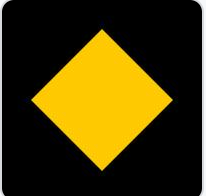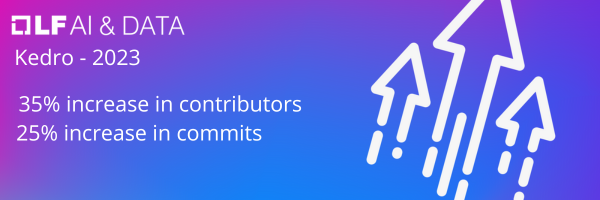LF AI & Data believes our developers’ are the driving force behind open source initiatives. Their unwavering commitment, profound expertise, and groundbreaking innovations profoundly influence the advancement of our projects and the broader community. In the rapidly evolving landscape of artificial intelligence and data, LF AI & Data Foundation’s projects have assumed even greater significance, and their success starts with the vibrant community surrounding them.
To honor our developer community, we proudly introduce a Developer Contributor Recognition as a tribute to their contributions. The program aims to spotlight and pay homage to their exceptional efforts that span across the AI & Data diverse projects.
We have been working with our project leaders to help identify key contributors and will create monthly posts highlighting their contributions. This month we recognize the Kedro community. Kedro is an open-source Python framework that promotes reproducible, maintainable, and modular data science code. It does this by giving data scientists, data engineers and machine-learning engineers a software engineering toolbox so that they can create production-ready data science solutions.
 Kedro has a self-documenting project template that you can adopt as a standard, ways to handle the many data systems that you must connect to create your insights and a way of constructing pipelines. When paired with Kedro-Viz, it not only offers a visual representation of your evolving data and machine-learning processes but also delivers insights into data lineage, manages records of machine-learning experiments, and facilitates smoother communication with business stakeholders.
Kedro has a self-documenting project template that you can adopt as a standard, ways to handle the many data systems that you must connect to create your insights and a way of constructing pipelines. When paired with Kedro-Viz, it not only offers a visual representation of your evolving data and machine-learning processes but also delivers insights into data lineage, manages records of machine-learning experiments, and facilitates smoother communication with business stakeholders.
Key milestones
- We announced our incubation in the Linux Foundation (AI & Data) in January 2022.
- In March 2022, Kedro 0.18.0 added support for Python 3.9 and 3.10, introduced a micro-packaging workflow and streamlined integration with IPython and Jupyter. In the same month, Kedro-Viz 4.6.0 added support for Plotly chart visualisation.
- We launched the Kedro website in May 2022.
- Kedro passed 8000 stars on GitHub in January 2023.
- Kedro adopted OmegaConf to enable advanced configuration support in February 2023.
- The Kedro blog launched in March 2023, with a first post about experiment tracking, which had recently been added to Kedro-Viz.
- We improved Kedro integration with Databricks in May 2023
- In May 2023, Kedro-Viz 6.2.0 extended experiment tracking to add collaborative features with data sharing for experiments.
- Kedro’s new branding was unveiled in June 2023, with changes to the identity that align it with our vision of simplicity and collaboration. In the same month we celebrated 4 years as an open-source project.
- In August 2023, Kedro shipped Python 3.11 support and is working on features that make Kedro more flexible as a standard for all.
Key contributors
In assessing developer recognition, project leaders consider multiple criteria: consistent, high-quality impact, innovative problem-solving, collaborative teamwork, and measurable achievements.
Marcin Zabłocki and our collaborators from GetInData
In appreciation for his valuable contributions to the Kedro plugin ecosystem, especially integrations with VertexAI, AzureML, Airflow-Kubernetes, AWS SageMaker and Kubeflow. Marcin and our collaborators from GetInData have expanded Kedro’s capabilities and provided key insights. Beyond Marcin’s technical work, he actively engages the community through conference talks, meetups, Slack support, and educational content.
Yolan Honoré-Rougé
In appreciation for his long-standing advocacy for Kedro and prolific contributions to the plugin ecosystem, especially the popular Kedro-MLflow integration. His technical expertise, community support, and future-focused ideas have made Yolan an invaluable contributor.
Joel Schwarzmann
In appreciation for being a friendly face of the Kedro community and advocating for user needs. Joel contributes integration ideas, reviews datasets, and ensures features address real-world problems.
Deepyaman Datta
In appreciation for his long-standing Kedro usage and contributions. Deepyaman helps with user support, advocates for all collaborators, and dedicates time to making Kedro better.
Waylon Walker
In appreciation for his incredible blog posts, tutorials, and plugins like Kedro-Auto-Catalog, Steel-Toes, Kedro-Static-Viz that champion Kedro users. Waylon creates invaluable learning resources through blogs, videos, and GitHub contributions.
Olivia Lihn
In appreciation for being a top-notch Kedro trainer, ensuring users at all levels can become proficient in beginner to advanced functionality in Kedro. Olivia champions Databricks workflows and integration. Her teaching and debugging help make Kedro more accessible.
Simon Brugman
In appreciation for Simon’s extensive technical contributions, including key work on Kedro’s plugin and packaging infrastructure and the popular Kedro-Airflow integration. His ideas and code have helped advance Kedro’s capabilities.
Iñigo Hidalgo
In appreciation for his generous community support in Slack and GitHub, as well as driving the first Kedro integration with Ibis for lazy loading SQL datasets.
Tam-Sanh Nguyen a.k.a. DataEngineerOne
In appreciation for the many hours he spent creating YouTube content that thousands of Kedro users have been able to watch. We remember your legacy and are looking at new ways to help our users in the same way that you did.
Other people to call out as contributors the Kedro team celebrate include:
- The team behind Kedro-Neptune
- Florian Gaudin del Rieu
- Matthias Roels
- Lodewic van Twillert
- Debanjan Banerjee
- Florian Gaudin-Delrieu
- Solomon Yu
- Ben Levy
- Dustin Liu
- Kevin Mills
- Marc Gris
There are opportunities to contribute to Kedro in a range of ways, from simply joining our Slack organisation and answering other user queries, to reporting and fixing bugs and suggesting and beyond, such as developing new features. We also encourage case studies and articles about Kedro users‘ projects and are happy to review them and publish on the Kedro blog, or link to them on our catalogue of all things Kedro over on the `awesome-kedro` GitHub repository.
Learn more about Kedro and find out more about how to contribute from our documentation and Wiki pages. Check out the FAQs.

